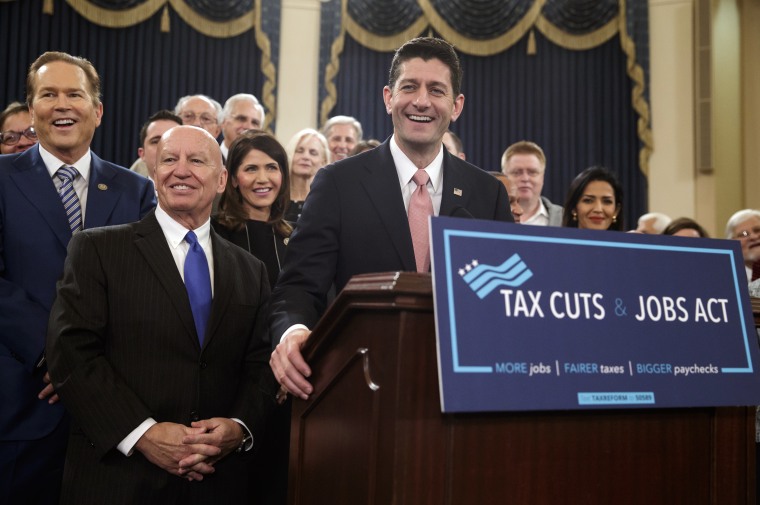During the debate over the Republicans' tax plan -- to the extent that there was an actual "debate" -- GOP policymakers insisted that they didn't have to offset the costs of the package. Republicans instead argued, with great sincerity, that tax breaks for the wealthy and big corporations would magically pay for themselves through increased growth.
The argument wasn't limited to partisan radicals. Even Sen. Susan Collins (R-Maine), ostensibly her party's most moderate federal lawmaker, defended her party's regressive Republican tax plan by insisting, more than once, that tax breaks would pay for themselves.
We now know, of course, that they were spectacularly wrong, and the budget deficit that Republicans used to pretend to care about is now ballooning -- just as critics of the GOP plan predicted.
What does one of the principal authors of the Republican tax policy have to say for himself? The Washington Post reported late yesterday:
Rep. Kevin Brady (R-Tex.), a lead architect of the GOP tax bill, suggested Tuesday the tax cuts may not fully pay for themselves, contradicting a promise Republicans made repeatedly while pushing the law in late 2017.Pressed about what portion of the tax cuts were fully paid for, Brady said it was "hard to know.""We will know in year 8, 9 or 10 what revenues it brought in to the government over time. So it's way too early to tell," said Brady at the Peterson Foundation's annual Fiscal Summit in Washington D.C.
Ah, I see. Brady and his compatriots said their massive tax breaks would pay for themselves, and now that the evidence shows otherwise, Brady now wants people to believe the tax breaks may someday pay for themselves.
It's a convenient way to win any argument about a prediction gone wrong: if we wait, eventually I might be right, and since you can't definitively prove otherwise, let's call it a draw.
There's no reason to take such a posture seriously. Republicans spent the Obama era pretending to be obsessed with balancing the budget, before taking power and increasing the deficit by nearly 40% -- a difficult thing to do during healthy economic times.
As a result, the GOP's entire approach to fiscal policymaking has been exposed as a joke. For the former House Ways & Means Committee chairman to suggest he may be right "in year 8, 9 or 10" -- when independent assessments show the deficit continuing to grow as a result of his own tax package -- is foolish.
Tax cuts for the wealthy don't pay for themselves. The idea has been tried repeatedly, and it's failed repeatedly. The fact that Republicans like Kevin Brady are reluctant to acknowledge the lesson suggests the party will never accept the lesson.
